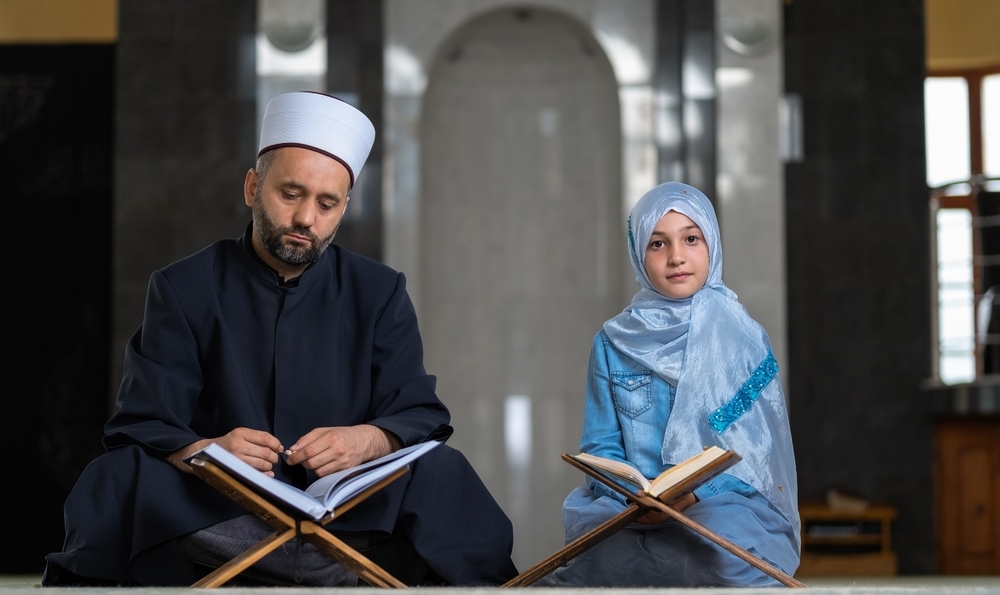What Are the Things Considered Obligatory for Muslims to Know?
Answered by Shaykh Yusuf Weltch
Question
What are the things/knowledge considered obligatory for Muslims to know?
Answer
In the Name of Allah, the Most Merciful and Compassionate
Personally Obligatory Knowledge (Fard al-‘Ayn)
The personally obligatory knowledge (fard al-‘ayn) which every Muslim is obliged to seek out is that knowledge by which one can fulfill their obligatory actions. [Birgivi, al-Tariqa al-Muhammadiyya]
The Obligations Upon the Muslim
One must know the following:
Islamic Beliefs
- What is necessary, possible, and inconceivable for Allah Most High
- What is necessary, possible, and inconceivable for the Prophets and Messengers of Allah Most High
- Beliefs about the transmitted matters of the unseen. (E.g., the Angels, Day of Judgment, Heaven and Hell, etc…)
Islamic Law
- How to perform a proper ablution (wudu) and ritual bath (ghusl)
- When the above two become necessary and what invalidates them
- How to perform the prayer soundly
- How to properly fast the month of Ramadan
- How and when to give the Zakat (Alms) if one fulfills the conditions of its obligation
- How to perform a sound Hajj if one fulfills the conditions of its obligation
- How to engage in sound and valid business transactions if one is involved therein
The Permissible and Impermissible:
One must know the various jurisprudence issues derived from the Quran and the Prophetic teachings. For example:
- What parts of the body are supposed to be covered by men and women
- What parts of the body come under the prohibition of looking at? etc
Fulfilling the Rights of Others
One must know and fulfill the rights of others. For example:
- The rights of one’s parents
- The rights of one’s children
- The rights of one’s spouse
- The rights of one’s neighbors
- The rights of one’s guests
The Sins and Virtues of the Heart
One must know the heart’s sins so they can abstain from that place. For example:
- What is pride? How is it cured?
- What is ostentation?
- What is conceit? Etc.
Summary
In short, it is obligatory to know how to fulfill all obligations and to refrain from all disobedience outwardly and inwardly according to one’s circumstances. [Birgivi, al-Tariqa al-Muhammadiya]
Communally Obligatory Knowledge
As for those sciences that go beyond the abovementioned issues, they are a communal obligation. This means that some individuals in each community must know the related rulings, thus sufficing the others from seeking such knowledge.
If no one takes on this task, everyone who has the ability will be sinful for abandoning this responsibility. [Birgivi, al-Tariqa al-Muhammadiyya]
Practical Advice
It is essential to pace one’s self in seeking the above knowledge. The Messenger of Allah (Allah bless and give him peace) said, “Verily, this religion is deep. So delve into it gently.” [Ahmad]
He (may Allah bless him and give him peace) also said, “…Know that none of you will be entered into Paradise by their deeds and that the most beloved deeds to Allah and those that are most consistent even though little.” [Bukhari]
Steps Certificate Program
I would strongly advise that you consider the ‘Steps Certificate Program’ offered by SeekersGuidance. The course is shaped in such a way to cover that which is personally obligatory for one to know. The course intends to be gradual yet deliberate, engaging but not unduly burdensome.
Check out our website and programs:
The Global Islamic Seminary
[Shaykh] Yusuf Weltch
Checked and Approved by Shaykh Faraz Rabbani
Shaykh Yusuf Weltch is a teacher of Arabic, Islamic law, and spirituality. After accepting Islam in 2008, he then completed four years at the Darul Uloom seminary in New York where he studied Arabic and the traditional sciences. He then traveled to Tarim, Yemen, where he stayed for three years studying in Dar Al-Mustafa under some of the greatest scholars of our time, including Habib Umar Bin Hafiz, Habib Kadhim al-Saqqaf, and Shaykh Umar al-Khatib. In Tarim, Shaykh Yusuf completed the memorization of the Qur’an and studied beliefs, legal methodology, hadith methodology, Qur’anic exegesis, Islamic history, and a number of texts on spirituality. He joined the SeekersGuidance faculty in the summer of 2019.
